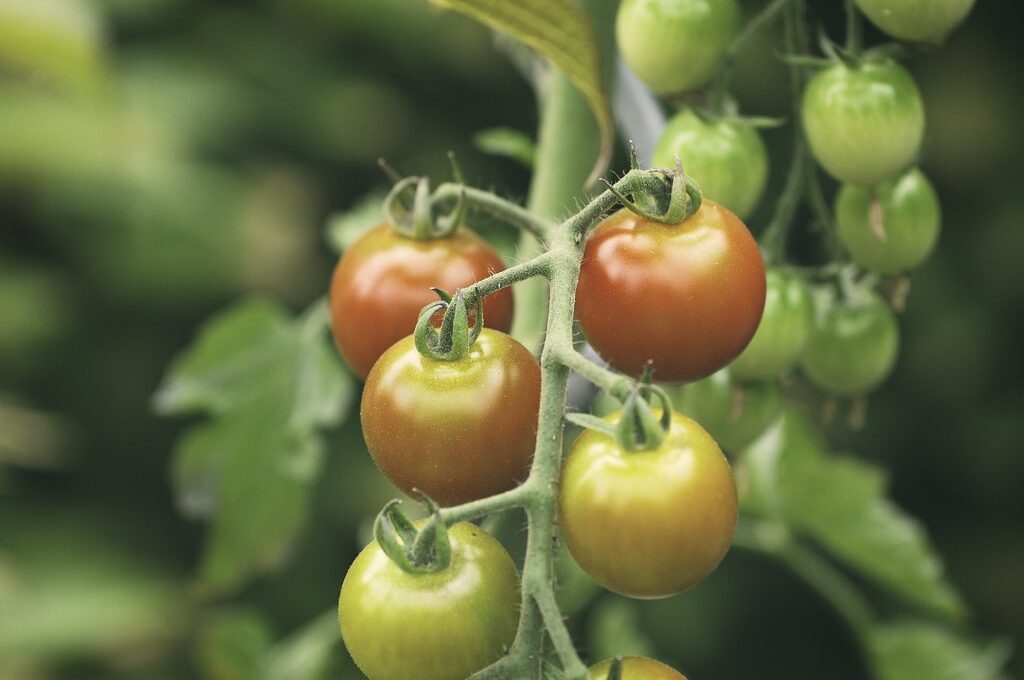Have you ever thought about burying an egg in your garden? It may seem like a strange practice, but when done correctly, it can bring numerous benefits to the health of your soil, plants and garden!
Burying eggs in your garden is an efficient way to give your plants the nutrients they need to thrive. In this article, we’ll discuss why you should bury an egg in the garden and how to do it. We’ll also provide some tips for getting the most out of this simple yet effective strategy.
So read on if you’re ready to learn more about why burying an egg in the garden is so beneficial.
Benefits to Soil Health
By burying certain items in your yard, you can help improve the health of your soil! Burying an egg in the garden is a great way to naturally fertilize your soil without using any chemicals or synthetic fertilizers. The nutrients from the egg will be released into the soil as it decomposes, providing essential minerals and adding organic matter that helps aerate the soil and encourages beneficial microorganisms.
This process also helps keep weeds at bay by blocking out light, which inhibits their growth. In addition to the natural fertilizer created by an egg burial, composting methods can also help create nutrient-rich organic fertilizers for your garden.
Composting is simply breaking down food scraps, leaves, and other organic materials to create a nutrient-rich material that can be used as fertilizer or mulch. This method works best when combined with regular applications of manure or compost tea to ensure the proper balance of nutrients for healthy plants.
If you want to take advantage of both natural and synthetic fertilizers for your garden, trying mixing them together into one solution. By combining different types of ingredients like manure, compost tea, and eggs you can get a balanced blend that provides all of the necessary elements for healthy plant growth while still keeping things simple and efficient.
Benefits to Plant Health
When it comes to the health and development of your plants, burying an egg in the garden can provide two big benefits. First, it helps improve growth and development by providing essential nutrients that are found in eggs.
Second, it also helps protect your plants from pests and diseases as the shell of the egg acts as a natural repellent.
With these two key benefits, burying an egg in the garden is a great way to keep your plants healthy and thriving!
Improved growth and development
You’ll be amazed at the improved growth and development when you don’t bury an egg in your garden! Burying an egg can actually cause more harm than good, as it can disrupt the natural balance of groundwater and nutrient levels. This causes the ground to become overly saturated with water, unbalancing the pH level which can ultimately stunt plant growth.
Without burying eggs, plants are able to easily access essential nutrients and minerals from the soil, allowing them to thrive. Some of the positive changes that occur without burying an egg include:
- Increased root development for better absorption of water & nutrients
- Improved air circulation around roots
- Stable temperature & moisture content in soil
These factors all contribute to healthy plant growth and help ensure a successful harvest season.
Protection from pests and diseases
Not burying an egg in your backyard can also help protect your plants from pesky pests and diseases, giving them the best chance to thrive. By crushing eggshells and using them as mulch, you create a natural barrier around each plant that repels insects and can prevent fungal growth.
Additionally, beneficial microbes found in the soil will be attracted to the decaying shells, providing essential nutrients for healthy plant growth. This form of protection is an effective way to keep your garden safe from harmful pests and diseases while still encouraging healthy development.
Benefits to Garden Health
Planting an egg in your yard offers multiple benefits for the health of your garden. Natural composting forms as the eggshell decomposes, providing essential nutrients to plants and soil. The calcium from the shell helps to nourish nearby vegetation and aids in improving soil structure, promoting stronger root systems.
Additionally, the eggshell acts as a natural water retention agent that helps to prevent moisture loss during dry spells. This reduces stress on surrounding plants and encourages healthier growth over time. As an added bonus, burying eggs can also help keep pests away due to their strong scent, further protecting your garden from potential damage.
All these factors combine to create a more vibrant landscape with fewer maintenance needs and a higher yield of crops.
Are Sun Dried Tomatoes a Good Option for Burying in the Garden?
Are sun dried tomatoes a good option for burying in the garden? There are several substitutes for sun dried tomatoes that are better suited for burying in the garden. While sun dried tomatoes are suitable for culinary purposes, they may not decompose properly in the soil. It is advisable to use organic materials or compost instead, to ensure proper decomposition and nutrient release for your garden.
How to Bury an Egg
Now that you know the benefits of burying an egg in your garden, let’s talk about how to do it.
Start by finding a spot in your garden that has good soil structure and better water retention. Once you’ve found a suitable location, dig a hole – we recommend one between six inches and eight inches deep – and gently place the egg inside.
Make sure to cover the egg with soil or compost after placing it in the hole to reduce the risk of predators getting to it. Your work doesn’t end there, however; be sure to keep track of where you buried your egg and monitor its progress for signs of decay.
If done correctly, burying an egg will help build strong soil structure as well as improve water retention around the area, allowing for healthier plants and higher yields! Plus, if you need more nutrients for your garden down the line, just dig up another egg – they’re a renewable source of natural fertilizer!
Is Burying Eggs in the Garden Beneficial for Plants?
Putting old eggs in the garden may have some benefits for plants. The eggshells can provide calcium, which is essential for plant growth. Additionally, they can help deter pests like slugs and snails. However, it’s important to crush the eggshells before burying them to prevent attracting animals.
Tips for Burying Eggs in the Garden
Burying eggs in your garden is an easy and environmentally-friendly way to give your plants a nutrient boost, so let’s look at some tips for doing it right!
First, make sure you’re using the correct watering technique. If you water too much or too little, you may not get the desired nutrients from the egg. Make sure to use a light hand when watering the area around your egg.
Second, consider adding some composting methods to increase the nutrient levels of your soil. Compost can provide essential nutrients and minerals that’ll help ensure your plants have access to all they need.
Finally, choose an appropriate location for burying eggs in your garden – one that gets plenty of sunlight and has well-draining soil. Planting near trees or other tall vegetation can also help keep moisture away from the buried egg and protect it from being washed away during heavy rainstorms.
With these tips in mind, you’ll be able to enjoy all the benefits of burying eggs in your garden!
Conclusion
Now that you know the tips for burying eggs in your garden, let’s talk about why you should do it.
First of all, burying eggs is an effective way to provide natural fertilization for your plants and soil. By adding a steady stream of nutrients into the ground, your garden will be more sustainable and able to support a larger variety of plants. Additionally, the calcium found in eggshells can help improve water drainage in soil, which is essential for healthy plant growth.
Not only that, but by adding organic matter like eggshells to your garden, you can also help reduce weeds and pests from taking over your space. The calcium found in eggshells helps create an inhospitable environment for weed seeds and pests, so they won’t be able to take root near your beloved plants.
Burying eggs is an easy way to give back to mother nature while also helping keep your garden growing strong and healthy! With minimal effort required on your part, this simple act can make a huge difference when it comes to sustainable gardening practices. Plus, you’ll get the satisfaction of knowing you’ve done something great for our planet!
Frequently Asked Questions
Is it safe to bury an egg in the garden?
You may be wondering if it’s safe to bury an egg in the garden. The answer is yes, as long as you take a few precautions.
First, make sure that you use proper planting techniques and consider the soil composition when deciding where to bury an egg. For example, a sandy or loamy soil works best for this task.
Additionally, fertilizing the area with compost or manure before burying your egg can help ensure optimal growth and health of your plantings.
With these tips in mind, burying an egg in the garden can be a great way to introduce beneficial microorganisms into the soil and enrich your plants’ environment.
What kind of egg should be used for burying?
You might be wondering what kind of egg should be used for burying in the garden. The best option is to use an organic egg from a native species. This ensures that you’re not introducing any foreign material into your soil, as well as optimizing the chances of the egg hatching properly.
An organic egg provides a safe and natural environment for the new creature to grow and thrive. Using a native species’ egg will help maintain balance in your garden’s ecosystem by ensuring that only those creatures which would naturally inhabit it survive and thrive.
How deep should the egg be buried?
When burying an egg in your garden, it’s important to consider how deep you should be digging. Generally, the egg should be buried about six inches into the soil.
This depth will create a compost environment that can help attract beneficial wildlife and enrich the soil with nutrients. It also ensures that animals won’t easily uncover the egg as they move around your garden.
Be sure to dig a shallow hole for the egg, so that it isn’t too difficult to remove when needed.
How often should an egg be buried?
Bury an egg in your garden periodically to attract wildlife and enrich the soil. It’s a simple task that takes just minutes to do, but its effects can last for months.
Not only does it bring new creatures into your yard, it also enriches the soil with essential nutrients which will keep your plants healthy and vibrant for longer periods of time. Plus, it’s a great way to get involved with nature and learn more about wildlife habits!
So grab an egg (or two!) and start burying it in your garden today – you’ll be amazed at the results!
Are there any risks associated with burying an egg in the garden?
You may be wondering if burying an egg in the garden is a safe practice, and the answer is yes.
However, there are some risks associated with it such as predatory animals digging up the egg or soil acidity which could damage the shell of the egg.
To minimize these risks, bury the egg deep enough that it won’t be disturbed by predators and make sure to monitor its condition regularly.
Taking these precautions will ensure that your egg has a safe and secure spot in your garden.
Conclusion
Burying an egg in the garden is a great way to improve your soil, plant, and overall garden health. You’ll be amazed at how quickly you can see results just by adding this simple step to your gardening routine.
To bury an egg properly, make sure it’s completely buried in the soil and that no part of it is exposed. Make sure the area where you’re burying it has enough water and space for the roots to spread out.
If done correctly, you’ll have improved soil fertility and healthier plants in no time! So go ahead and give burying eggs a try – you won’t regret it!









